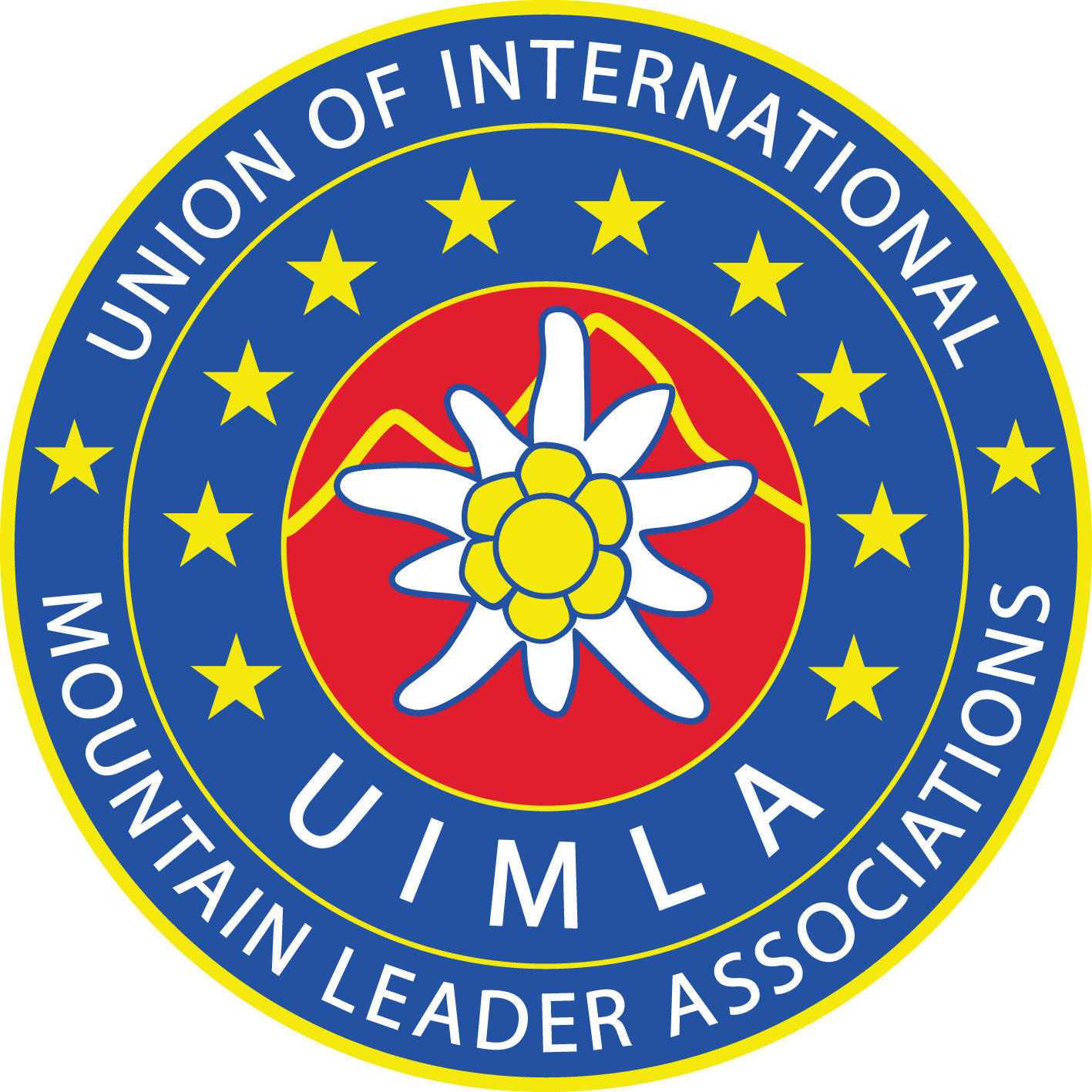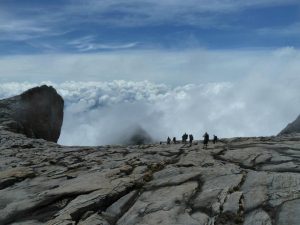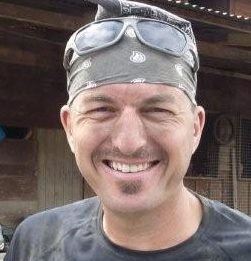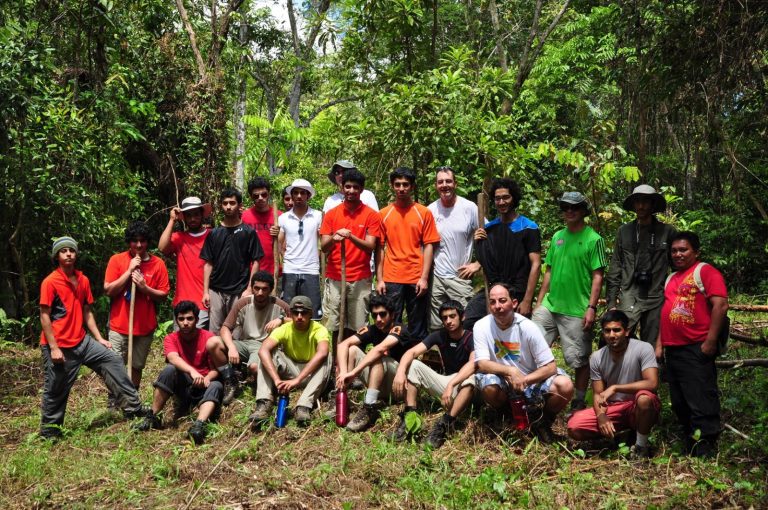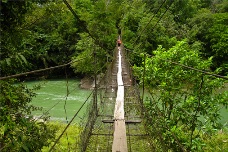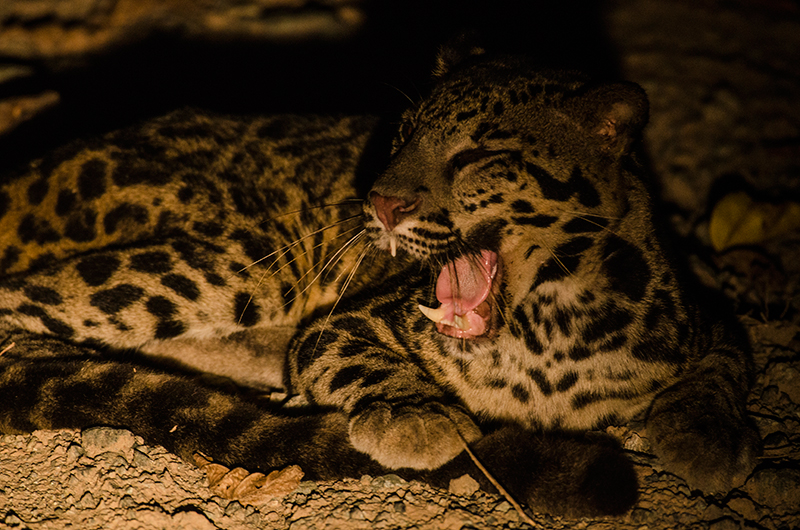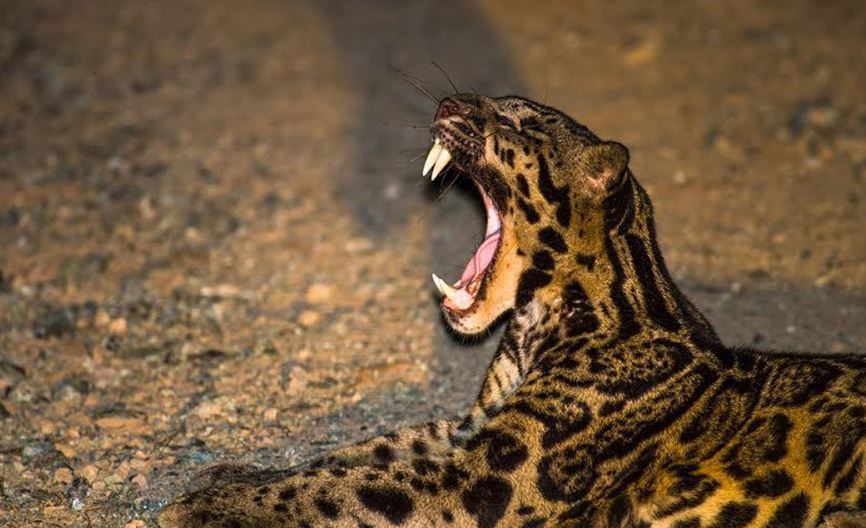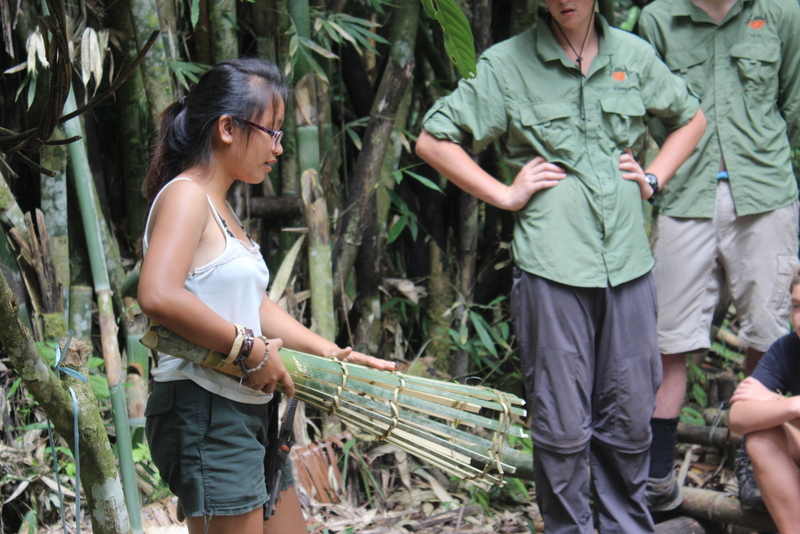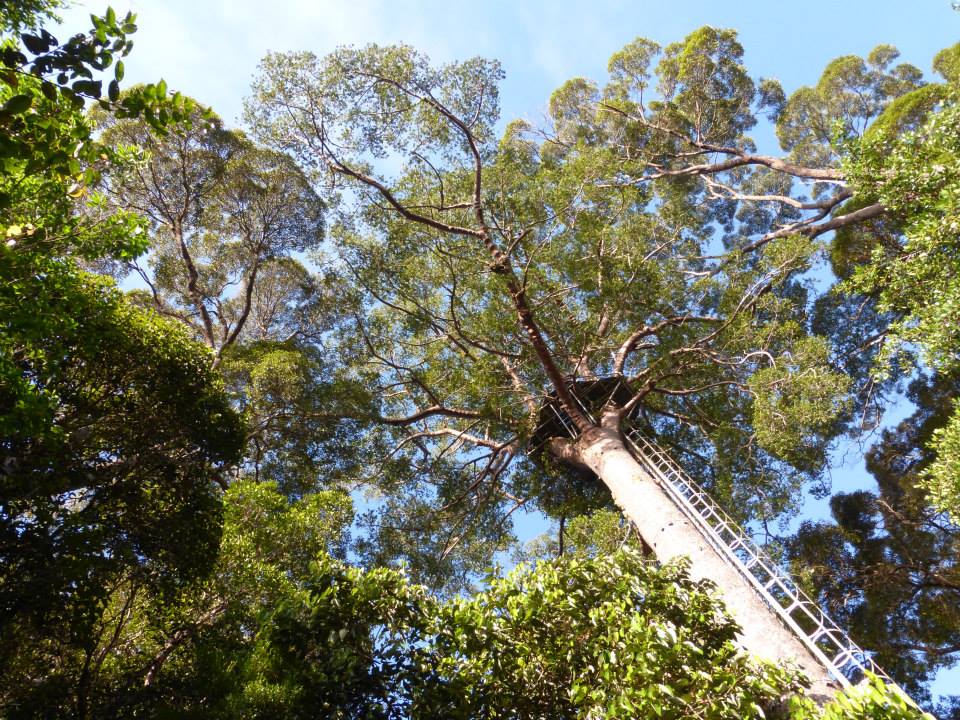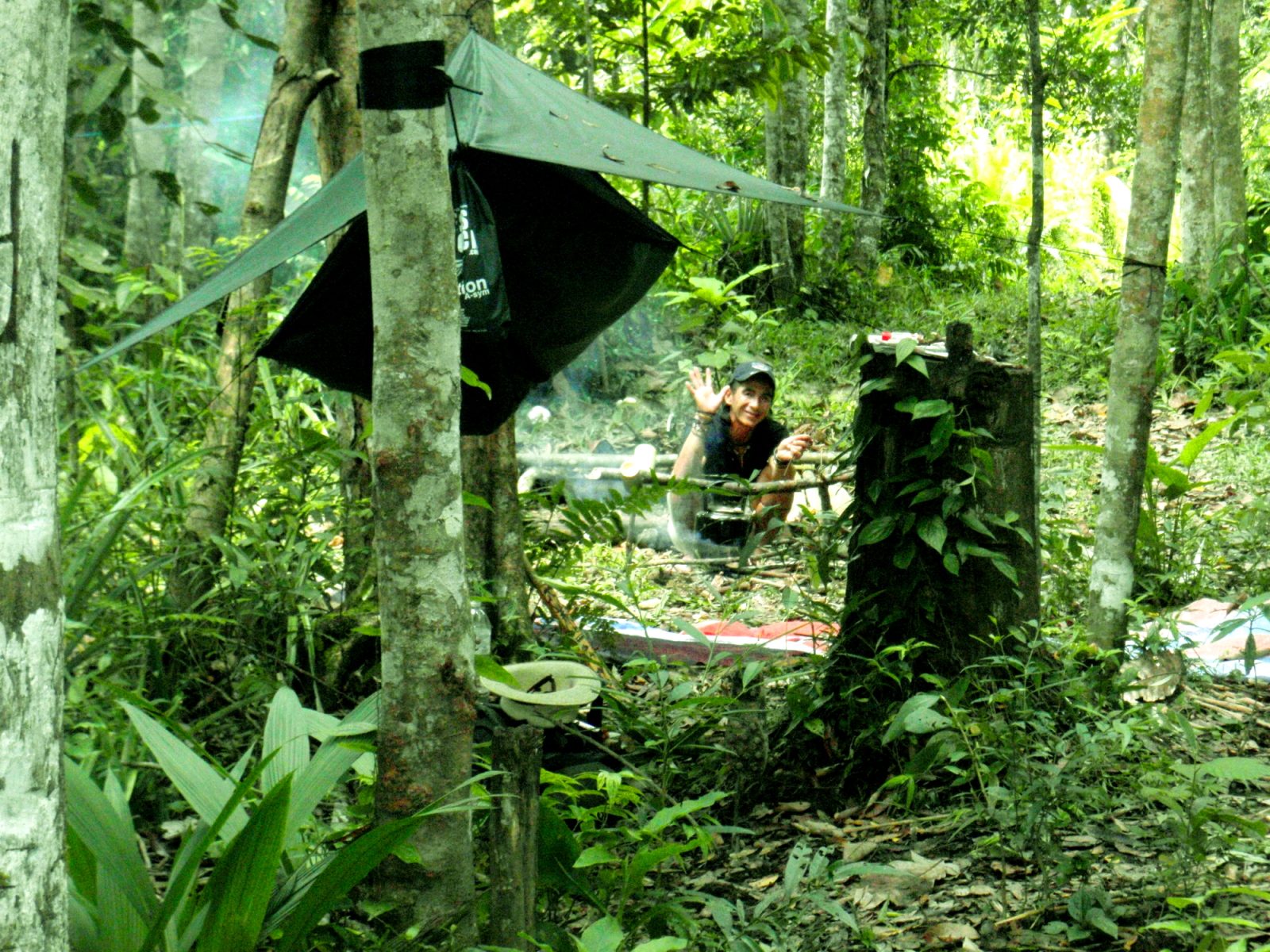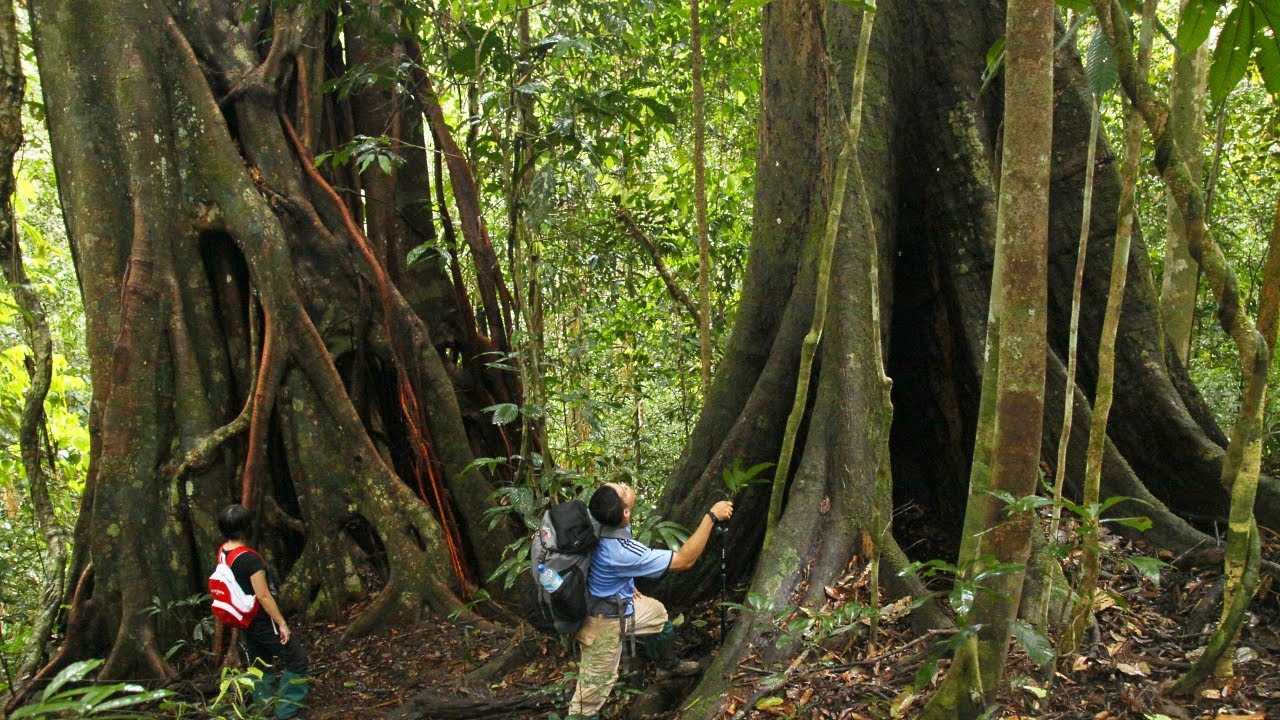Travel light and compact in the jungle. The large holdall will carry everything on international travel and can be used to store anything that is not going in to the jungle, but once you start the journey into Sarawak you don’t need much. Normally you have two sets of clothes, a day set which gets very damp from the humidity, and a dry set for the evening. At night you sleep in hammocks with a cotton sheet and a light sleeping bag, wearing a t-shirt.
In the jungle you have to contend with the heat and humidity, so there are lots of water stops and plenty of opportunity to jump in streams and cool down. Insects are attracted to the sweat so wear lightweight long sleeved clothing and shorts, and no cotton underwear or anything which might chafe. Insect repellent is useful and you may want to consider a repellent for clothing. Leech socks are also useful, basically knee length socks that are very smooth so the leech cannot latch on as you walk past. They dangle of grass stems and branches and wait for you to brush by. They are not painful, in fact you have no idea they have landed on you until you see the blood. Apart from being a bit gruesome, dealing with leeches is not a big problem. Most people find it takes time to acclimatise to the humidity in the forest, but once this has happened after a few days most people love the experience of being under the canopy and travelling so light.
There are many brands/types of water purification bottles and you can get them in good outdoor/travel shops and online shops. The Aquapure Traveller Bottle or something similar will work well in Borneo. Actually if you are using running water there are few problems to worry about, the water is from the rain and it’s lovely and fresh. Sieving the water is useful in case of bits, and by all means use the chlorinated tablets that are common, or a water filter.
The two main brand names for suitable hammocks are ‘Hennessy Hammocks’ and ‘Nomad Travel’ though if you end up getting the a Nomad hammock then remember that you will also need to get a mosquito net too, all suitable Hennessy hammocks have a mosquito net built in. A Nomad hammock and mosquito net should work out much cheaper than a Hennessy hammock. We do rent them out to people on trips, or you can buy one for yourself online.
Clothing should be lightweight cotton or synthetic (bear in mind that cotton is slow drying, a synthetic fabric like polyester or nylon will be much quicker drying) though no matter how quick drying your clothes are you should expect them to be damp at best throughout your time in the jungle!
Mount Kinabalu
This is a three day trek up and down a great mountain which is actually a batholith (a huge mound of granite) rising out of the oldest rainforest in the world. There are very easy paths to follow although they do go on and on! The walk takes you through the lower forest and up into the montane or alpine style forest, and if you’re lucky and quiet you can see and hear a lot of wildlife. The paths are big rocky trails which can be pretty tiring on the leg muscles and knees, so it’s important to stretch afterwards or else put up with a bit of hobbling the next day! The heat can be intense, so there are lots of water stops at the rest stations which are called pondoks. You’ll meet a lot of people going up and down, it’s a very popular activity for Malaysians and they come from far and wide. Wear good trekking boots, shorts, Tshirts and shirts and definetely take warm clothing for the night and waterproof jackets for when it rains. When it rains, it absolutely pours down. Tropical downpours are pretty common here so make sure everything is in dry bags inside your rucksack.
You will need your sleeping bag plus the liner to keep warm, and sleeping mats only if we are using tents near the Sayat Sayat hut, but you can rent them locally. For the summit day itself you are up in the dark so bring a good headtorch, and negotiating the open rocky plateaux to get to the summit. It can be cold so warm hat, gloves, fleece and waterproof jacket are all important. You only need one of everything really because it’s just a three day trek up and down, but make sure you keep it dry!
Beach and other places
This is a tropical paradise so bring swimming stuff, sandals or flipflops, towel, sunglasses and cream, beach gear and Tshirt for swimming in. It’s really easy to get a sunburnt back while snorkelling over coral reefs. Some people like to bring light neoprene gloves and socks for the snorkelling just in case you step on something or touch something that is sharp or stings.
For sightseeing and just being around, keep it simple and light and remember that the sun can do a lot of damage to our fair skin.
Personal Medical Kit suggestion
Paracetamol
Ibuprofen
Antiseptic Wipes
Adhesive Plasters
Blister Plasters
Zinc Tape
Insect Repellent
Antihistamine tablets
Sunblock Cream
Water Purification Tablets
Rehydration Sachets
Personal Medication as required:
eg. Anti-Malarials, Asthma Inhalers, Insulin, Epi-Pen etc
Possible Additional Personal First Aid Items
Lip Salve
Throat Lozenges
Latex gloves
Crepe Bandage
Hydrocortisone Cream
Prochlorperazine tablets (for sickness/nausea)
Ciprofloxacin tablets (general antibiotic; prescription required)
Acetazolamide tablets (altitude prophylactic; prescription required)
Note: you must check with your GP for your personal suitability to all medicines and their possible side effects and interactions. Please inform us of the details of all regular medication that you intend to use though the course of your trip and any relevant allergies and medical history related to them. You also need to check the requirements and regulations of the airline and all countries visited in relation to medications. For example; laws governing transport of some pain control medication and the need keep insulin at a suitable temperature, ie not in the cargo hold.

